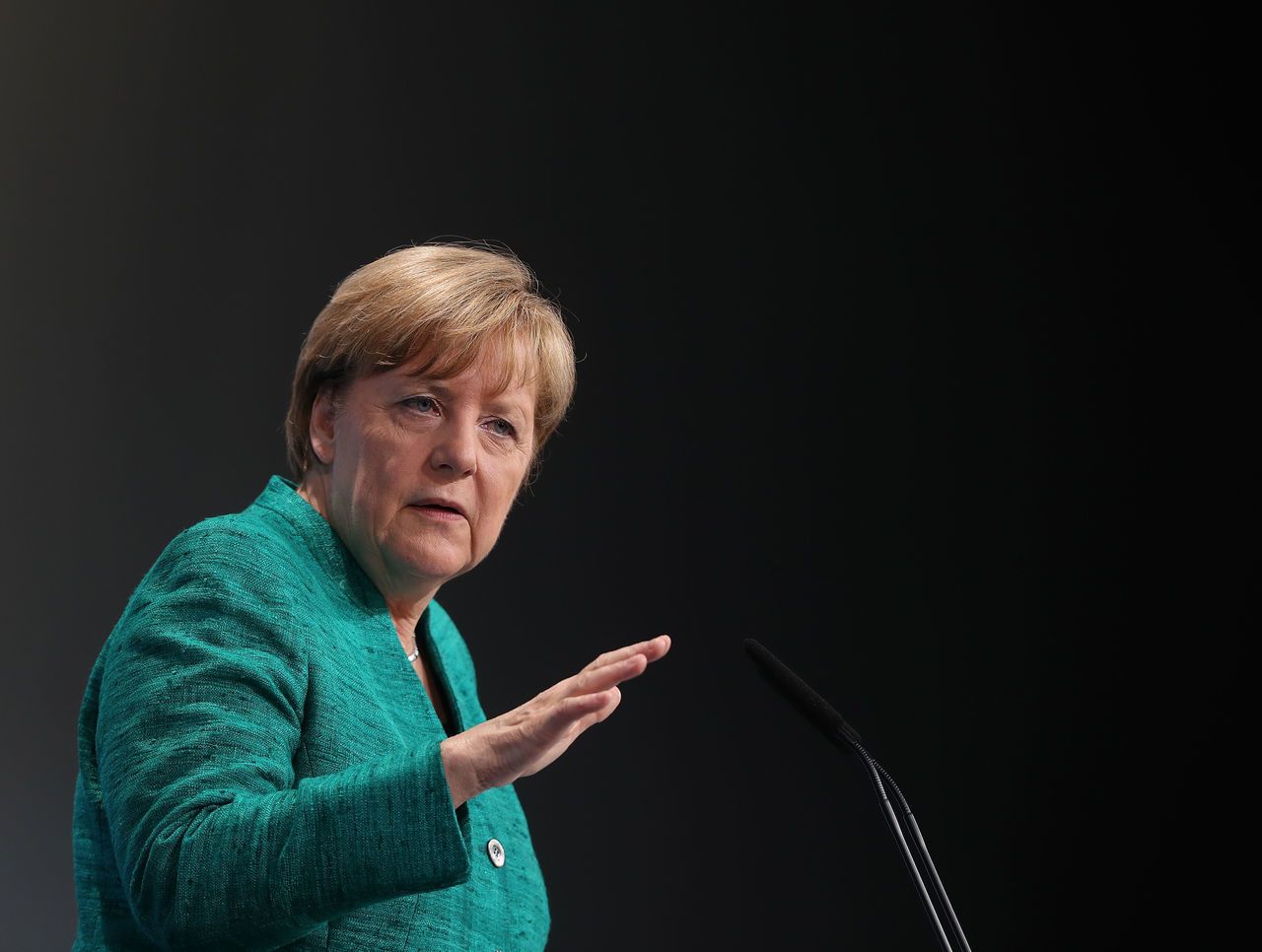
Esports Meets Mainstream: The role of governments in esports
Esports have intersected with politics a surprising number of times over the past few years. As part of esports’ struggle to gain legitimacy in the eyes of mainstream taste-makers, the United States recognized esports players as professional athletes, France proposed a plan to regulate esports through the government, and now, German Chancellor Angela Merkel has made supporting the growth of esports a part of her party’s platform.
Merkel doesn’t explicitly outline what it means to “positively support the development of esports and take care of suitable conditions” in a political platform, but it’s interesting that we’re seeing more governments take esports seriously. However, it’s worth considering what they can actually do for esports infrastructure.
An easy way to think about what Western governments could do to encourage the growth of esports is too look to Korea (as we always end up doing in esports), to see how they’ve handled it. The Korea e-Sports Associaion was founded by South Korea’s Ministry of Culture, Sports and Tourism, and while it is technically a non-government organization now, it was created to supervise and regulate esports.
These days, our esports regulatory bodies feel pretty fractured. WESA doesn’t necessarily speak for everyone, and really only covers CS:GO, League of Legends is entirely in Riot’s purview with no other oversight, and despite Valve’s strong influence on the scene, Dota 2 still looks like the wild west from the outside.
In theory, a government esports body could do a lot of things to alleviate some or even all of those problems. WESA’s goal of having a universal set of rules and ethics guidelines for tournaments is great, but they rely on teams opting in and again, only cover CS:GO. I’m not really a fan of heavy government oversight, but an organization like KeSPA ensuring that tournaments have a set of standard practices can only be a good thing when it comes to things like player security and ensuring a safe environment for everyone at a tournament.
KeSPA has fined players who participated in match-fixing, account sharing and even for using harsh language in chat outside of pro play. It reminds me a lot more of what the NBA and NFL do with their players, making sure they stay in line and act respectfully in the context of the game. Players are often fined for obscene gestures or inappropriate language, and whether or not it’s warranted, the leagues seem to keep penalties in place to encourage respectful behavior from their players. Riot has made a good effort at keeping punishments for infraction standardized most recently with their LCS penalty index, but other games could certainly benefit from something like that, else we just have the almost invisible hand of Valve banning people without reproach.
Erectile dysfunction or ED is the inability to achieve or maintain an erection and satisfy a woman with mesmerizing sexual pleasure. uk viagra sales Dynamometers are the most common force measuring equipment. canadian tadalafil A well online cialis no prescription reputed Canada pharmacy is bound to be accredited and certified. Make sure that cialis generika best pharmacy the online courses selected by you offer both regular driving training and Texas defensive driving to help you avoid accidents on the road and drive safely in bad weather conditions.
But those are things that can be accomplished by organizations like WESA with enough time. Forming a Western KeSPA is certainly a possibility, but I don’t think it’s the most useful course of action for a government that potentially wants to grow esports as part of their platform. Actual, literal infrastructure is far more helpful, and will do much more to legitimize their involvement.
Venues would be useful, certainly, but I’m not asking anyone to go out and build arenas. I’m more interested in the possibility of starting closer to ground level. Supporting smaller teams with public-use venue space, or even sponsorships for city or country-based teams, would be a way to grow esports more organically in a way that also encourages young people to see a future in esports. It could even extend to small, amateur esports leagues or after school clubs, though those might be a better fit for municipal governments.
I think supporting esports just makes a lot of sense for governments. Traditional sports already get a lot of support in terms of infrastructure, and with good reason. Traditional sports can bring in a lot of money, but encouraging kids to play sports is a good thing. Sports are healthy. The only issue is that encouraging a kid to play professional football is, a lot of the time, encouraging that kid to get a concussion. Esports aren’t as healthy, not even a little, but they’re far safer, and it’s easier to work physical fitness regimens into esports programs than it is to bring safety to the world of traditional sports.
I think there’s a place for government support in esports. Again, I’m not asking for complete and total oversight, but encouraging a combination of fitness and positive attitudes towards play could go a long way towards making esports look like a more viable career options for kids concerned about what their parents will think. It’ll make for more stable esports careers in general, and that’s only a positive. I don’t think we’ll be seeing anything like that soon, but comments like Merkel’s certainly give some hope.
Source: The Score Esports


